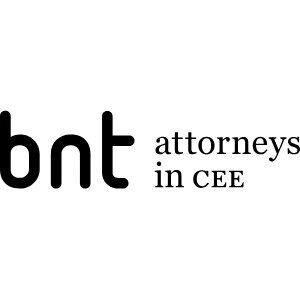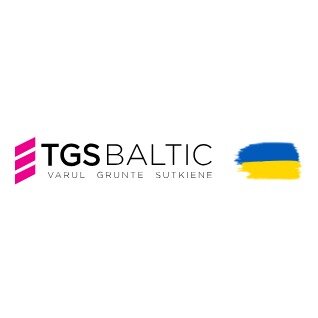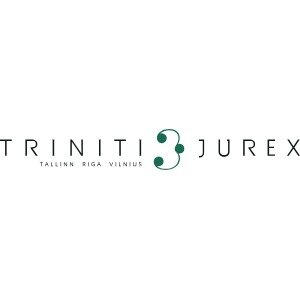Best Public-Private Partnerships (PPP) Lawyers in Estonia
Share your needs with us, get contacted by law firms.
Free. Takes 2 min.
Or refine your search by selecting a city:
List of the best lawyers in Estonia
About Public-Private Partnerships (PPP) Law in Estonia
Public-Private Partnerships (PPP) in Estonia refer to collaborative projects between public sector authorities and private sector companies. The main goal of PPPs is to deliver public infrastructure or services through shared responsibility, risk, and investment. PPPs are commonly used in the fields of transport, energy, healthcare, and municipal infrastructure. The legal framework for PPPs in Estonia ensures transparent and efficient cooperation, promoting both innovation and quality in public services. Estonian PPPs are often regulated by public procurement laws, contract law, and sector-specific regulations.
Why You May Need a Lawyer
Engaging in a Public-Private Partnership can be complex due to the intersection of public law, commercial interests, and regulatory requirements. You may need a lawyer in several situations, such as:
- Understanding whether a proposed project qualifies as a PPP under Estonian law
- Drafting, reviewing, or negotiating PPP contracts and related documents
- Ensuring compliance with public procurement procedures and the relevant EU directives
- Managing project risks, financial arrangements, and dispute resolution mechanisms
- Resolving disputes that may arise during the execution or operation of a PPP
- Advising on tax, financing, and regulatory issues associated with PPP projects
- Navigating sector-specific laws for infrastructure, transport, or energy projects
Local Laws Overview
PPP projects in Estonia are governed by a combination of national laws, EU directives, and contract terms between the parties. Key aspects include:
- Public Procurement Act - Establishes the rules for procurement of goods, services, and works, ensuring transparency and competition.
- Contracts Law (Law of Obligations Act) - Governs the formation, execution, and enforcement of PPP agreements.
- Administrative Procedures Act - Sets procedural requirements for public authorities involved in PPP projects.
- Sector-Specific Legislation - Laws relating to transport, health, energy, or municipalities may impose additional requirements for PPPs in those areas.
- EU Law - Many PPPs must comply with relevant European Union regulations, including procurement, competition, and state aid rules.
All PPPs must follow the principles of equal treatment, non-discrimination, transparency, and proportionality.
Frequently Asked Questions
What types of projects can be developed through PPPs in Estonia?
PPPs can be used for a wide range of public infrastructure and service projects, including roads, schools, hospitals, utilities, energy plants, and transport networks.
Are there specific laws regulating PPPs in Estonia?
While there is no single comprehensive PPP law, PPPs are mainly regulated by the Public Procurement Act, Law of Obligations Act, and various sector-specific laws.
What is the typical duration of a PPP contract in Estonia?
PPP contracts can range from several years to several decades, depending on the nature and scale of the project.
Does the private partner assume project risks in PPPs?
Risk allocation is a core part of PPP agreements. Both parties typically share risks, but the private partner often takes on design, construction, operational, and financing risks.
How are PPPs financed in Estonia?
PPPs may be financed through a mix of public funding, private investment, grants, and loans, often structured to incentivize efficiency and innovation.
Can foreign companies participate in Estonian PPP projects?
Yes, foreign companies can participate in Estonian PPPs, provided they meet the requirements set out in the Public Procurement Act and other relevant laws.
How is transparency ensured in PPPs?
Transparency is achieved through public procurement procedures, open competition, publication of tenders, and oversight by regulatory bodies.
What happens if there is a dispute between partners in a PPP?
Disputes are generally resolved through negotiation, mediation, or arbitration, as specified in the PPP contract. Estonian courts may also handle certain disputes.
Aren’t PPPs just government outsourcing?
No, PPPs involve a greater sharing of risk, responsibility, and long-term cooperation between public and private sectors compared to traditional outsourcing.
Is it necessary to hire a lawyer for a PPP project in Estonia?
While not legally required, engaging a lawyer with PPP expertise is highly recommended due to the legal complexity, contractual obligations, and potential risks involved.
Additional Resources
For more information and support regarding Public-Private Partnerships in Estonia, consider engaging with the following resources:
- Ministry of Finance of Estonia - Responsible for PPP policy and guidance
- Public Procurement Register - For current tender announcements and contract awards
- Enterprise Estonia - Offers investment and advisory support for business engagements
- Estonian Chamber of Commerce and Industry - Provides networking and legal advice for enterprises
- Estonian Bar Association - Directory of qualified lawyers with PPP and infrastructure expertise
- European PPP Expertise Centre (EPEC) - Resource for EU best practices and guidance
Next Steps
If you are considering involvement in a Public-Private Partnership project in Estonia, take these next steps to protect your interests and ensure project success:
- Clearly define your project goals and assess whether a PPP structure is the most suitable approach
- Familiarize yourself with relevant Estonian laws, procurement procedures, and sector-specific regulations
- Collect all necessary documentation, including feasibility studies, financial projections, and proposed partnership structures
- Consult with a legal expert experienced in PPPs to review documentation, identify risks, and provide guidance during negotiations
- Engage other professional advisers, such as accountants or engineers, as necessary
- Participate in public tenders or discussions with government agencies to identify upcoming PPP opportunities
- Monitor regulatory developments and seek ongoing legal advice through the duration of your project
Remember, early legal advice can save significant time and resources by helping you navigate complex PPP requirements in Estonia.
Lawzana helps you find the best lawyers and law firms in Estonia through a curated and pre-screened list of qualified legal professionals. Our platform offers rankings and detailed profiles of attorneys and law firms, allowing you to compare based on practice areas, including Public-Private Partnerships (PPP), experience, and client feedback.
Each profile includes a description of the firm's areas of practice, client reviews, team members and partners, year of establishment, spoken languages, office locations, contact information, social media presence, and any published articles or resources. Most firms on our platform speak English and are experienced in both local and international legal matters.
Get a quote from top-rated law firms in Estonia — quickly, securely, and without unnecessary hassle.
Disclaimer:
The information provided on this page is for general informational purposes only and does not constitute legal advice. While we strive to ensure the accuracy and relevance of the content, legal information may change over time, and interpretations of the law can vary. You should always consult with a qualified legal professional for advice specific to your situation.
We disclaim all liability for actions taken or not taken based on the content of this page. If you believe any information is incorrect or outdated, please contact us, and we will review and update it where appropriate.
Browse public-private partnerships (ppp) law firms by city in Estonia
Refine your search by selecting a city.














